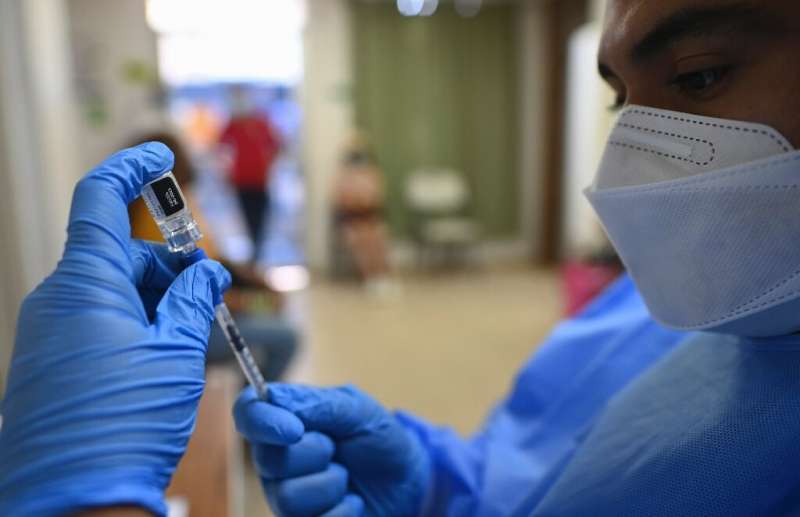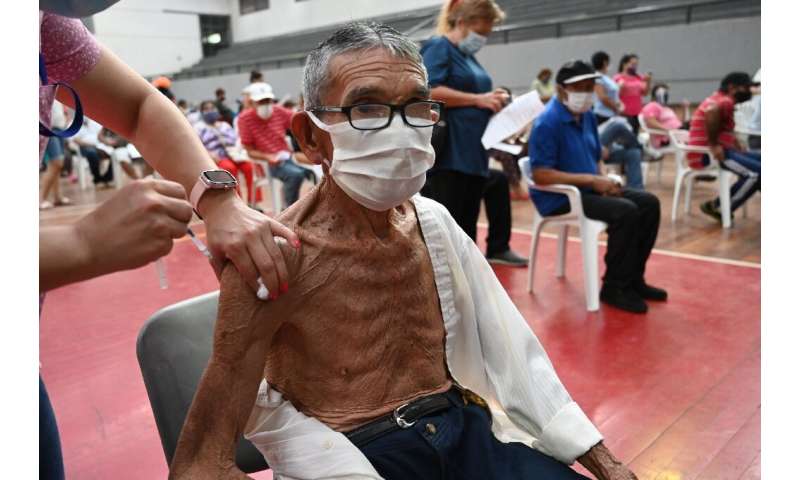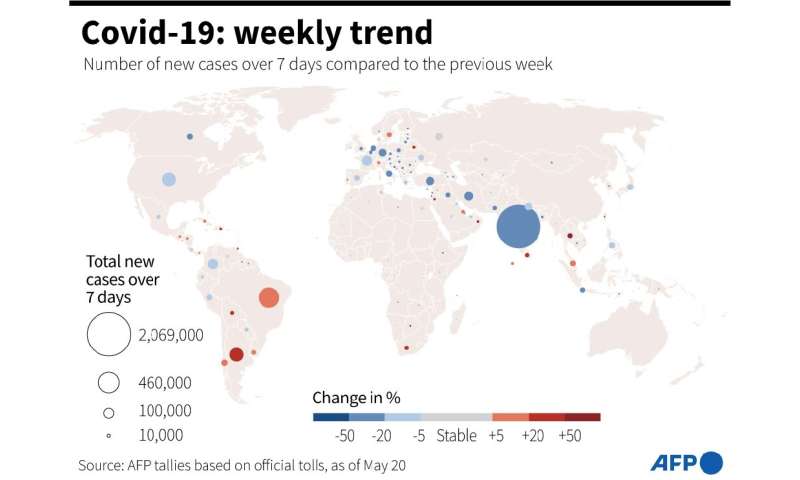Latin America passes 1 million Covid deaths as IMF proposes $50 bn plan

Latin America and the Caribbean passed one million coronavirus deaths on Friday as the IMF proposed a $50 billion plan to end the pandemic, aiming to expand global immunization drives.
Since the coronavirus was first detected in Latin America in Sao Paulo in late February 2020, AFP has recorded over 1,001,400 fatalities—almost 30 percent of the global total—and more than 31.5 million cases.
Nearly 90 percent of those deaths have been recorded in just five countries: Brazil, Mexico, Colombia, Argentina and Peru.
“People aren’t taking care, none of us are being careful and we want to go out and travel,” said Alicia Sepulveda, a resident of Buenos Aires, Argentina, a country that will go on a nine-day lockdown beginning Saturday after President Alberto Fernandez said it was facing its “worst moment” yet in the pandemic.
Latin America suffers from a lack of access to vaccines and necessary medical supplies, and has only finished immunizing three percent of its population, according to the Pan American Health Organization (PAHO).
Globally, the real number of dead from the pandemic was “at least two to three times higher than officially reported,” Samira Asma, the World Health Organization’s assistant director-general in charge of data told reporters.

Billions of dollars, doses
In Washington, the International Monetary Fund proposed a $50 billion recovery plan with the aim of having at least 60 percent of the world’s population vaccinated by the end of 2022.
The amount pales in comparison to the massive stimulus rolled out by rich nations, including the latest $1.9 trillion US package.
“One of the key messages of this proposal is that the amount that’s needed is not very big,” said IMF chief economist Gita Gopinath.
Vaccine firms meanwhile pledged to supply billions of doses to poorer nations by the end of next year at the Global Health Summit in Rome, which was part of the G20 talks.
Leading COVID vaccine makers Pfizer, Moderna and Johnson & Johnson promised 3.5 billion doses at cost or discount to middle- and low-income countries this year and next.

“It is a very clear ‘no’ to health nationalism,” European Commission chief Ursula von der Leyen told the G20 after the EU pledged 100 million doses and to invest in manufacturing hubs in Africa to reduce reliance on imports.
Germany chipped in later Friday, donating 30 million doses to poorer countries this year.
All vaccinated welcome
Vaccines are offering hope that nations can finally emerge from the pandemic that has ravaged the global economy and killed more than 3.4 million people since the end of 2019.
In Europe, the tourism sector looked on track to start a cautious resumption as Spain said it would open its borders to all immunized travelers from June 7.
Prime Minister Pedro Sanchez also said that all British travelers would be welcomed in for holidays—without even needing to present a negative COVID test.

In sharp contrast, however, Germany said it would from Sunday require people arriving from Britain to quarantine for two weeks because of the spread there of a coronavirus variant first found in India.
Germany on Friday opened beer gardens, terraces and pools in some parts of the country for the first time in months.
It was a welcome change for Berliner Sonja Gellfart, who was already in the outdoor pool at the Sommerbad am Insulaner at 7:30 am.
“It’s the feeling of freedom because one can get in here and be outdoors, and without a mask,” she told AFP as swimmers splashed past.
Stock markets rose on growing evidence of economic recovery as restrictions are gradually lifted.
In Britain, retail sales surged 9.2 percent in April as non-essential stores reopened. Demand for clothing rocketed almost 70 percent as consumers splashed out.
Source: Read Full Article
